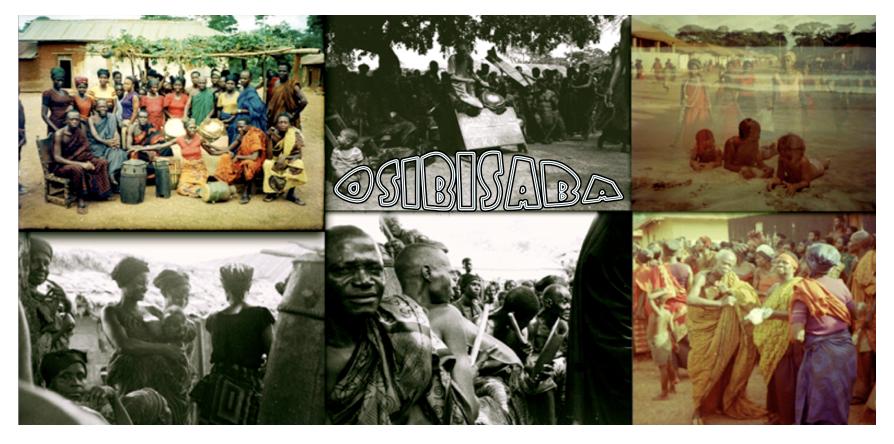The Uhuru Dance Band's rare, 1975 album The Sound of Africa was recently posted in full by an ebay seller last month. Released on Kwadwo Donkoh's Agoro label, this unique album blends funk, American soul/jazz, highlife, and dance-band music much in the same vein as the Ogyatanaa Show Band (you may recongnize the Uhuru's "Yahiya Mu" which was featured on the Ghana Special compilation). Accordingly, this unique sound was largely driven by saxophonist George Amissah (Uhuru's then band leader) and Kwadwo Donkoh, who worked as a composer, arranger, and musician on this album as well as Ogyatanaa's Yerefrefre and Obra Mu Asem. At the same time, much of the lead singing on The Sound of Africa (as well as the two Ogyatanaa albums) is recognizably performed by the same individual (see "I Know My Mission" for an example). Unfortunately this singer's name remains a mystery, as does the actual relationship between this album, Kwadwo Donkoh, and the Ogyatanaa Show Band. Of course, any additional information would be greatly appreciated.
 Considering the high prices that old, rare & funky Ghanaian records routinely fetch on websites like ebay (anywhere from several hundred to several thousand dollars), these low-quality sample recordings may very well represent the only opportunity for most of us to hear albums like the Uhuru's The Sound of Africa. Here, I've posted the album in full for your downloading convenience as offered on ebay, with track titles added and problematic clicks/skips cleaned up. However, some questions remain. For one thing, what is the correct order of the eleven tracks? Secondly, are any readers able/willing to submit a photo of the album's back cover? This would certainly clear up the question of the track order and potentially provide some additional background info.
Considering the high prices that old, rare & funky Ghanaian records routinely fetch on websites like ebay (anywhere from several hundred to several thousand dollars), these low-quality sample recordings may very well represent the only opportunity for most of us to hear albums like the Uhuru's The Sound of Africa. Here, I've posted the album in full for your downloading convenience as offered on ebay, with track titles added and problematic clicks/skips cleaned up. However, some questions remain. For one thing, what is the correct order of the eleven tracks? Secondly, are any readers able/willing to submit a photo of the album's back cover? This would certainly clear up the question of the track order and potentially provide some additional background info.In the meantime, take some time to enjoy this unique and diverse album.
Update: Thanks to Akwaboa, here's a scan of this album's back cover. Track order is now revealed, along with song translations and background info about Kwadwo Donkoh/Uhuru. Excellent!



















